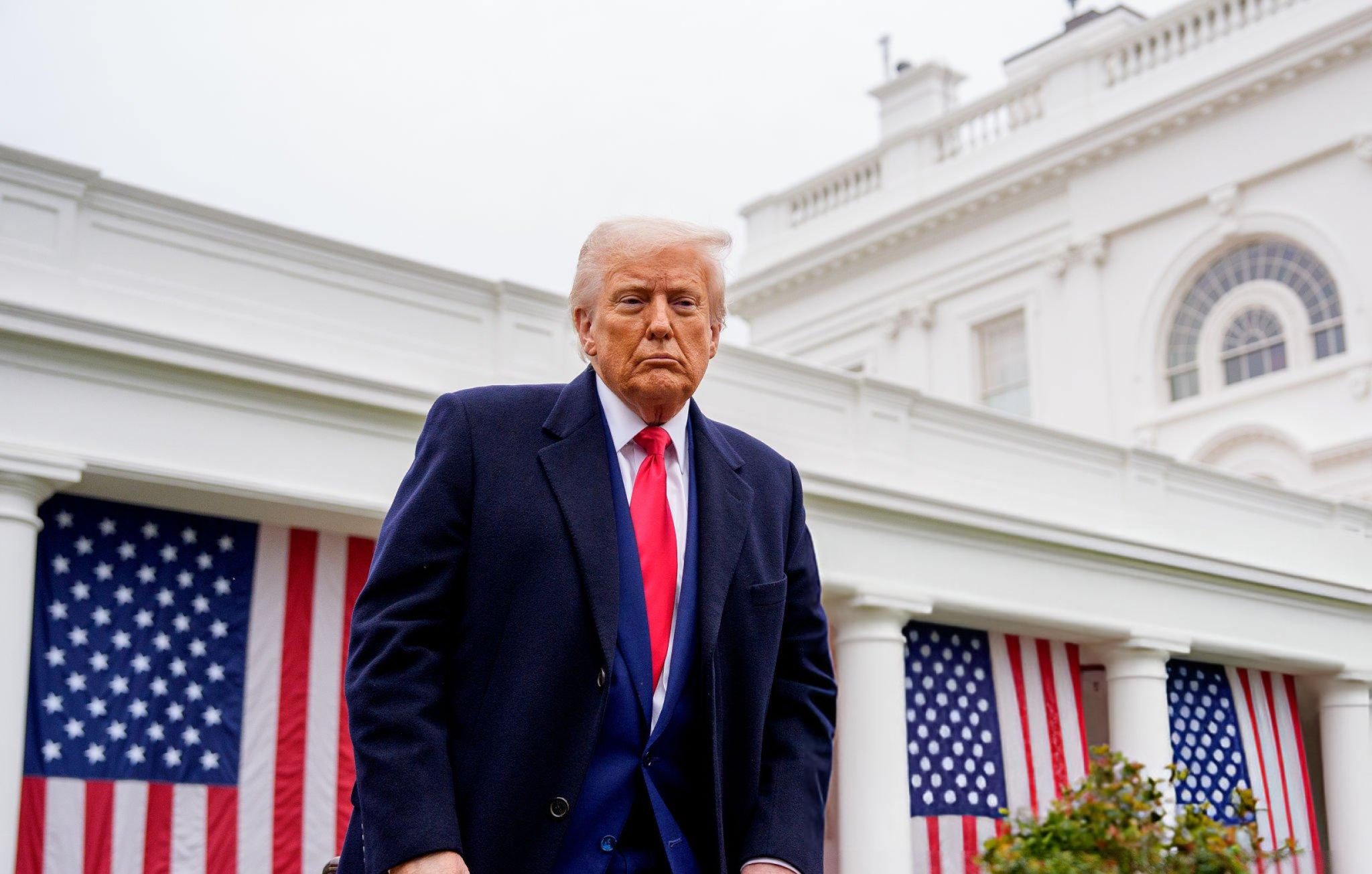In a defiant statement from the White House, US President Donald Trump has said he is “not looking” to pause the sweeping trade tariffs that have sent shockwaves through global financial markets, as UK Prime Minister Sir Keir Starmer urged for “cool heads” and national unity in the face of escalating economic instability.
Speaking to reporters in the Oval Office on Monday, President Trump dismissed calls to reconsider the tariffs, which include a 25% duty on British-made cars and additional levies on steel, aluminium, and other key exports. He reiterated his belief that tariffs serve both as leverage in international negotiations and as a revenue-raising tool.
“They can both be true,” Mr Trump said. “They can be permanent tariffs, and they can also be part of negotiations. There are things we need beyond tariffs.”
The comments came as global markets reacted sharply. London’s FTSE 100 suffered its steepest drop in over a year, plunging 4.38% to 7,702.08. In the US, the Dow Jones fell by 1.52%, while the S&P 500 declined by 0.96%. Sterling also took a significant hit, dropping 1.28% to $1.272 against the dollar by the close of trading in London.
In the UK, Prime Minister Sir Keir Starmer visited a Jaguar Land Rover (JLR) plant in the West Midlands to show solidarity with British manufacturers affected by the tariffs. The Prime Minister told workers:
“These are challenging times, but we have chosen to come here because we are going to back you to the hilt.”
Sir Keir acknowledged the gravity of the moment, calling it a “completely new world” shaped by both economic and geopolitical instability, including the continuing war in Ukraine. He said:
“This is not a passing phase. It’s a moment for cool heads, but also for urgency. We must rise together as a nation to meet the great challenge of our age — to renew Britain and secure our place in an uncertain world.”
The automotive industry, already grappling with the transition to electric vehicles, has been hit especially hard. The Government responded by announcing more flexibility in the zero-emission vehicle mandate. Sales of hybrid cars that do not plug in will be permitted until 2035, though the 2030 ban on purely petrol or diesel cars remains in place.
“We’re not ideological, we’re pragmatic,” said Sir Keir. “If flexibility helps, as it clearly does for JLR, then of course we will take those steps.”
Despite the PM’s calls for restraint, tensions remain high in Westminster. Business Secretary Jonathan Reynolds rejected suggestions that Britain should retaliate with its own tariffs.
“That would be the wrong move,” he said in an interview with Sky News. “Escalation helps no one.”
Meanwhile, Conservative leader Kemi Badenoch accused Sir Keir of “not doing very much yet” in response to the crisis. She added:
“What we want to see is a trade deal that actually helps lower the tariffs. He’s made a late move on easing electric vehicle targets, but frankly, that should’ve come months ago.”
Nigel Farage, leader of Reform UK and a vocal supporter of President Trump, offered a rare criticism of his ally, calling the new tariffs “a bit excessive” and warning they risk further economic fallout.
As markets brace for continued volatility, Mr Trump showed no sign of backing down. He issued a fresh threat to raise tariffs on Chinese goods to 50%, in response to Beijing’s retaliatory 34% rate.
“Be strong, courageous, and patient,” he told Americans. “Greatness will be the result.”
With no clear resolution in sight, both Downing Street and the White House appear set on their respective courses — one seeking calm diplomacy, the other relishing confrontation. The next few weeks will likely prove critical in shaping the future of transatlantic trade.






